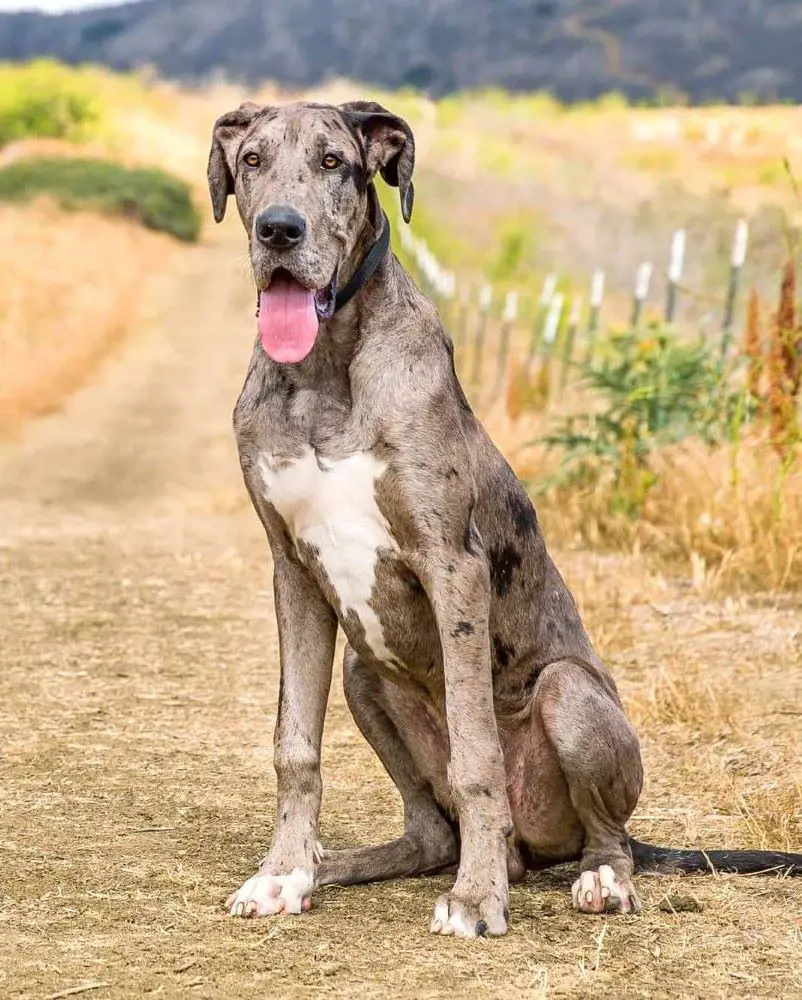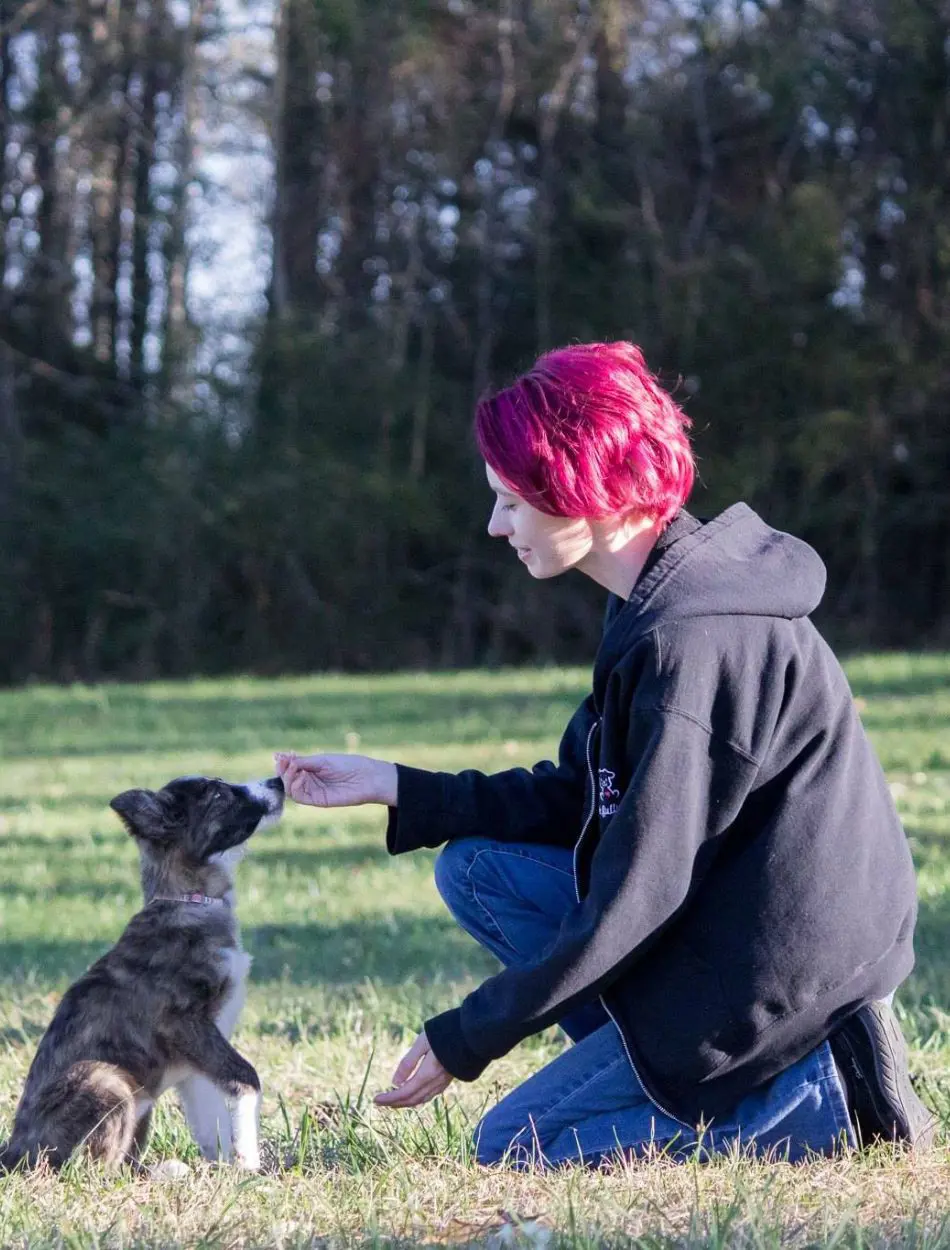Dog Health: 20 Healthiest Dog Breeds

Just like humans, dogs also need to be of sound health if they want to live a long and happy life. Regular exercise, a balanced diet, and routine veterinary care are crucial for a dog to remain in shape.
Healthy dogs are more likely to exhibit positive behaviors, have a higher energy level, and show enthusiasm for activities and interactions. They are less prone to anxiety, depression, and other behavioral issues. Additionally, a dog's health depends on a variety of factors, including genetics, physical activity, training, and food.
1. Australian Cattle Dog

The Australian Cattle Dog is a healthy breed with a lifespan of around 12 to 15 years. However, the breed is still vulnerable to a few health issues. One of its most common health concerns is hip dysplasia, a genetic condition that causes pain and mobility issues in hip joints.
Regular veterinary check-ups and responsible breeding practices can help minimize the risk of this condition.
2. Australian Shepherd
Compared to other breeds, Australian Shepherds have an average lifespan of about 12-15 years, which is relatively long. They are known to be an active and athletic breed, who regularly exercise to maintain their physical and mental well-being.
While these dogs are generally healthy, they may be prone to epilepsy. It is a neurological disorder that causes seizures. It is essential to monitor their health and seek veterinary care if any symptoms are noticed. These pups are at risk of eye problems such as cataracts and progressive retinal atrophy. Regular eye examinations can help detect and manage these conditions.
3. Beagle

Beagles normally live a healthy and long life of about 12-15 years. Due to their love for food, these dogs have a tendency to overeat, leading to weight gain and related health problems. Therefore, it is important to monitor their diet and exercise levels to keep them fit and healthy.
Despite these potential health issues, Beagles are generally considered a robust and sturdy breed. They have a strong immune system and can adapt well to different environments. Regular exercise, a balanced diet, and regular veterinary check-ups can help ensure their overall health and longevity.
4. Border Collie
Border Collie has a complex immune system that helps protect it from various diseases and infections. The system is made up of a network of cells, tissues, and organs that work together to defend against harmful pathogens.
These dogs are known for their overall good health and vitality, which is considered to be the secret behind their strong immune system. However, the strength of an individual dog's immune system can also be influenced by factors such as genetics, diet, exercise, and overall care. Provide sufficient essential vitamins, minerals, and antioxidants to keep your pet in peak health.
5. Boxer

The Boxer is a healthy breed that is less prone to certain common dog diseases compared to other breeds. One disease that Boxers are relatively immune to is Canine Hypothyroidism. This condition occurs when the thyroid gland fails to produce enough thyroid hormone, resulting in symptoms like weight gain, lethargy, and hair loss. However, Boxers are less likely to develop this disease compared to other breeds.
On average, these dogs have a life expectancy of around 10-12 years. Regular veterinary check-ups, a balanced diet, exercise, and proper grooming can further extend their lifespans.
6. Cairn Terrier
The Cairn Terrier is a small breed that originated in the Scottish Highlands. They were primarily bred for hunting small game, such as rats and foxes, in the rocky Cairn region.
Cairn Terriers are generally considered a relatively healthy breed with a life expectancy of around 13 to 15 years. However, like all dogs, they can be prone to certain health issues. Some common concerns for Cairn Terriers include allergies, skin conditions, hip dysplasia, luxating patellas, and progressive retinal atrophy (a degenerative eye disease).
7. Cavalier King Charles Spaniel

Cavalier King Charles Spaniels usually live a healthy life unless they suffer from a serious condition. One common health concern for the breed is mitral valve disease, a heart condition that can lead to heart failure.
Moreover, they are also prone to syringomyelia, a neurological disorder that affects the spinal cord. Additionally, some Cavaliers may develop eye problems such as cataracts or progressive retinal atrophy.
8. Chihuahua
To keep a Chihuahua healthy, there are several key factors to consider. Firstly, providing a balanced and nutritious diet is essential. High-quality dog food formulated specifically for small breeds is recommended, with attention to portion control to prevent obesity. Also, fresh water should be available at all times.
The breed is prone to dental problems, so providing appropriate chew toys and regular toothbrushes can help prevent issues. Additionally, they are sensitive to extreme temperatures, so they should be protected from extreme cold or heat.
9. Dalmatian

The Dalmatian is characterized by its unique genetic makeup. They are beloved for their distinctive eye color, which is usually blue or brown. The gene responsible for their blue eyes is associated with deafness; a high percentage of these dogs are born with hearing impairments.
Another notable genetic trait of the breed is its predisposition to urinary stones. This is due to a genetic anomaly that affects their ability to metabolize uric acid properly. As a result, Dalmatians require a specific diet to prevent the formation of stones in their urinary tract.
10. English Springer Spaniel
English Springer Spaniels are considered a healthy breed, but they may be predisposed to certain conditions. Some potential health concerns in this breed include hip dysplasia, progressive retinal atrophy (PRA), ear infections, and certain types of cancers.
Responsible breeders often conduct various health tests on their breeding dogs to minimize the risk of passing on these genetic conditions to the offspring. Choosing a reputable breeder will significantly reduce the chances of a puppy being born with a genetic defect or underlying health condition.
11. German Pinscher

The German Pinscher is a physically strong and powerful breed. Their strength is a result of their genetic makeup and their purpose as working dogs. The breed possesses a powerful jaw and a bite force that can exert significant pressure.
This strength enables them to excel in various tasks, such as hunting, guarding, and even competing in dog sports like agility and obedience. They have a well-developed neck and shoulders, providing them with the ability to exert force and pull heavy loads.
12. Golden Retriever
Golden retrievers have an average lifespan of 10-12 years, which is relatively good compared to some other breeds. However, they can still be at risk of suffering from certain health conditions.
One of the main health concerns for the breed is cancer, which is a leading cause of its death. Additionally, they can be predisposed to certain heart diseases, such as dilated cardiomyopathy. However, when compared to some other breeds, golden retrievers have a relatively low incidence of certain genetic disorders.
13. Great Dane

While Great Danes may not possess the same muscularity as some other breeds, they still exhibit impressive physical strength. Their bodies constitute a deep chest, strong legs, and a powerful neck.
Great Danes have remarkable endurance, making them suitable for activities like running, hiking, and pulling. Their immense size alone can be intimidating and serves as a deterrent to potential threats.
14. Greyhound
Greyhounds are considered a healthy breed, thanks to their unique physiology and genetic makeup. Their slim and athletic build helps to prevent many common health issues associated with obesity and excessive weight gain.
Also, the breed has a low body fat percentage and a high muscle mass, which contributes to their overall good health. Greyhounds also have a relatively low incidence of genetic diseases compared to some other dog breeds.
15. Havanese

Havanese has all the right reasons to be included in this list. Firstly, they have a long lifespan, often living between 14 to 16 years. Additionally, they have a relatively low incidence of genetic health issues compared to some other breeds.
Havanese dogs are generally free from major hereditary disorders, although they may still be prone to certain conditions like patellar luxation or progressive retinal atrophy. Regular exercise and a balanced diet are essential for maintaining their overall health.
16. Labrador Retriever
There are some diseases and health conditions that Labrador Retrievers are less likely to suffer from compared to other breeds. One such condition is hip dysplasia. Labs have a relatively low incidence of hip dysplasia compared to many other large breeds. This is partly due to responsible breeding practices that aim to reduce the occurrence of this condition.
While Labradors are at lower risk for certain health conditions, it is important to note that individual dogs may still be affected.
17. Maltese

The Maltese is a small breed of dog known for its long, silky white hair and friendly temperament. Originating from the Mediterranean island of Malta, this breed has a rich history that dates back thousands of years.
These dogs were highly valued by aristocrats and nobles in ancient civilizations, often being considered a symbol of luxury and opulence. They were even believed to have healing powers in some cultures.
18. Pembroke Welsh Corgi
The Pembroke Welsh Corgi is indeed a healthy and powerful dog breed. They have a lifespan of around 12 to 14 years, which is relatively long for a dog of their size.
Despite their short legs, they have remarkable endurance and can keep up with active lifestyles. Their energy levels are high, allowing them to participate in activities like agility training, herding, and even competitive obedience.
19. Shiba Inu

The Shiba Inu is considered a healthy breed due to its genetic diversity. They are an ancient breed that evolved naturally over centuries; this has helped them maintain a relatively strong genetic pool. However, this does not mean they are immune to all health problems.
Some common health issues associated with the breed include hip dysplasia, allergies, patellar luxation, and eye conditions like progressive retinal atrophy. Additionally, they can be sensitive to certain medications and anesthesia.
20. Siberian Husky
Raising a Siberian Husky is not a child's play. In addition to providing a safe and cozy environment to their pets, dog owners have to take on a lot of responsibilities while raising a puppy.
Engage your Huskh in daily activities like walking, running, or playing fetch to keep them physically fit and prevent boredom. Mental stimulation can also be achieved through puzzle toys or obedience training.
Recent posts
Dogs
Why Do Dogs Pee In The House?
Uncontrolled peeing inside the house is usually perceived as a sign of a poorly-disciplined dog. However, it may not always be true as the canine could be suffering from a medical issue or cognitive decline. And, getting made is not the solution as y...
Dog Sleeping Positions And Their Meanings
The diverse sleeping dog positions of our furry companions unveil a fascinating tapestry of behaviors and emotions in the canine realm. From the classic Curler to the enigmatic Superman, each posture conveys a unique message about a dog's well-being ...
Dog In Heat: When It Happens And How Long Does It Last
A female dog will get to the phase of reproduction known as the heat cycle if she has not been spayed. If you have an unspayed female dog, it's vital to understand the stages of her heat cycle. During heat, a canine's conduct may additionally c...
15 Causes of Dog Losing Hair
Occasional hair loss and shedding is a natural physical process in dogs. Seasonal shedding helps remove dead and excessive hair from their body. But, when a dog starts losing excessive hair, it can be a terrifying sight for pet owners. Often, dog par...
18 Signs A Dog is Dying
Recognizing the signs that a dog is dying can be heartbreaking, but it's far more essential to offer comfort in their final days. The signs consist of changes in behavior and constant hunger indicating that it may be time to say good-bye. Owners who...
15 Reasons Why Dogs Eat Poop And How To Stop It
Dogs sometimes engage in odd and unhealthy behaviors, along with ingesting their poop or that of different animals. This habit may be concerning and disgusting for any pup owners. This habit has many motives, however, the secret is locating eff...







